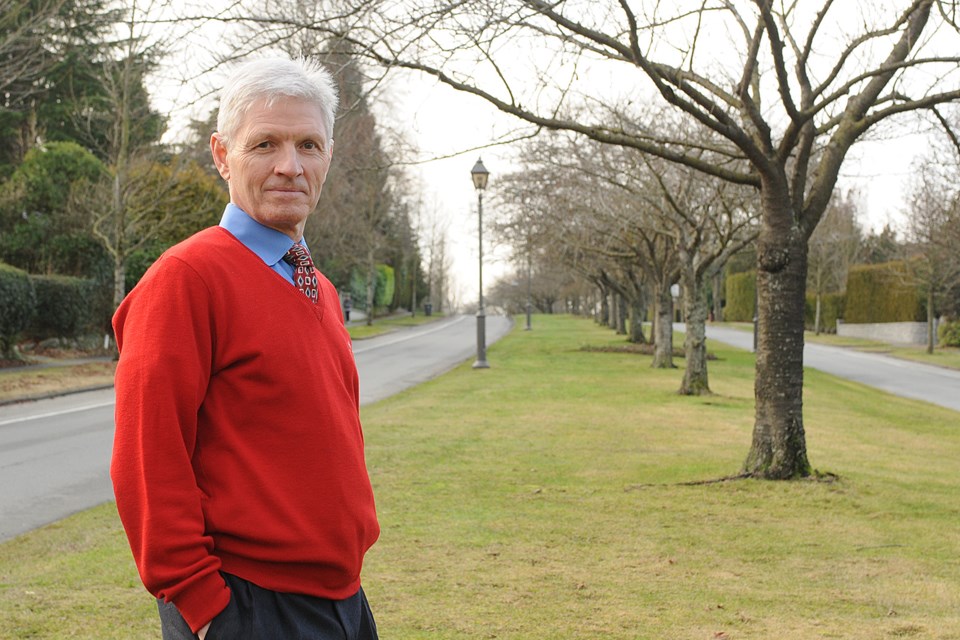It's a mini version of a municipality whose neighbours are the University of B.C., the City of Vancouver and the Musqueam Indian Band.
It operates without a mayor or city council.
And it takes up a big chunk of land - about 3,000 acres, or so.
Chances are you probably visited the University Endowment Lands or, at least, heard about it. But how much do you really know about this mostly forested area, west of Blanca Street?
With the Courier featuring the University of B.C. and the goings-on of the campus and community this issue, we caught up with Stephen Butt to tell us more about the University Endowment Lands.
Butt is the acting manager of the lands, or UEL, and he spent time with the Courier this week to educate us about the somewhat mysterious unincorporated community, where its residents don't pay taxes to the City of Vancouver and can't vote in a civic election.
Q: I understand the UEL was created by the UEL Act way back in 1907. But what was the purpose of setting the lands aside?
A: It was created to establish a land trust to raise capital for the formation and the initial operation of the University of British Columbia. The first residential lots were sold at public auction in 1925. And at that time, the residential portion of the area came to be known as university hill. Some of the long standing residents still refer to it as university hill but that name doesn't have the same meaning for newer residents.
Q: How many residents live in the UEL?
A: We have a total population at the current time, plus or minus 100 or so, of about 4,000 residents. And that's made up of about 445 single-family homes and the rest are a mix of multi-family strata buildings, multi-family rental buildings and a small area of commercial properties at the village.
Q: What's the average price of a home?
A: The average assessed value for a single-family dwelling is about $5.1 million.
Q: What was the UEL's operating budget last year?
A: It was around $7.5 million.
Q: You're the acting manager of the UEL but who actually governs the lands?
A: The provincial government, which is quite unusual. It's an anomaly. I don't think there's any other entity in B.C. and I don't know that there's any other entity in Canada that operates like this.
Q: The UEL's website indicates the Ministry of Community, Sport and Cultural Development is the provincial government body responsible for governance. Tell me about the ministry or minister's powers.
A: Those powers enable the minister [Coralee Oakes] to levy property taxes, enact bylaws and essentially appoint a manager to manage the University Endowment Lands on a day-to-day basis.
Q: What is the biggest difference about living in Vancouver versus living in the UEL?
A: We don't have a mayor or city council. So you can't phone up your local councillor. We have advisory councils to represent the community and there is a Metro Vancouver electoral area A representative [Maria Harris], but that's not the same as a council member who has statutory authority. Essentially, the mayor of the UEL is the minister because, ultimately, the power to make decisions rests with the minister.
Q: What's kind of questions do you get from new residents when they move into the UEL?
A: We get this question: How come I can't use the Vancouver library? You cannot use the Vancouver library system because we're not part of the City of Vancouver.
Q: What do residents say is the best thing about living in the UEL?
A: I think the residents would say that the best thing about living in the UEL is its unique setting and the community's connection to the administration of the UEL.
Note: This interview was edited and condensed.
[email protected]
twitter.com/Howellings



